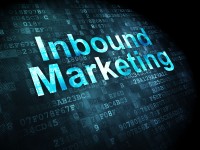
The phrase 'inbound marketing' is becoming increasingly popular, and chances are that you have heard the term before especially when marketing professionals discuss it as a means to help supplement lead generation. However, why is inbound marketing so important, and how can it help your law firm generate real leads and cultivate real relationships?
What Is Inbound Marketing?
An inbound marketing strategy focuses on attracting prospects through a variety of marketing channels, like your website, SEO, blog articles, and email discussions, and then systematically provides relevant and helpful follow-up information to build credibility, rapport, and conversions.
With traditional marketing (outbound marketing), businesses focus on finding clients, often using unwelcome marketing techniques like cold calls and junk email/print mail. Instead of interrupting people with these invasive tactics, inbound marketing positions your law firm to be the solution to the answer that your ideal clients are seeking by speaking to their specific needs.
The heart of inbound marketing focuses on building awareness and creating valuable, educational content that pulls people toward your website where they can learn more about the solutions to their problem on their own time. Providing valuable content gives your prospective clients the guidance they need to develop trust and recognition in your firm, and ultimately helps convert them from a prospect to a paying client. Nowhere is trust more important than in the relationship that exists between an attorney and his/her client.
Why Your Firm Should Consider Inbound Marketing
If you are looking for an effective way to generate more clientele, then you should consider adopting inbound marketing techniques for the following reasons:
Inbound marketing increases lead generation:
Inbound marketing is a website-driven campaign that promotes strategic calls-to-action and useful consumer resources (e-books, checklists, “how-to” guides, etc.) that motivate visitors to provide their contact information. It gives visitors who are earlier in the buying cycle an opportunity to engage with your website and receive educational information through a series of highly targeted emails. Considering only about 5 percent of website visitors convert into a lead, this strategy targets the other 95 percent of visitors that your website doesn’t convert.
Inbound marketing has more robust data collection and segmenting:
Inbound marketing leverages automated data collection by programming every website contact form and download form to feed into your marketing database. It also segments your new leads and contacts into separate databases, including clients, service-specific leads, hot leads, low-commitment contacts, etc.
Inbound marketing utilizes marketing automation:
In addition to automated data collection, inbound marketing also sends automated yet highly-focused emails to segmented contacts. Prospective clients receive multiple follow-up resources to help move them through the buying cycle, rather than generic promotional materials. Some key statistics:
- Companies that automate lead management see a 10% or greater increase in revenue in 6-9 months (Gartner Research).
- Personalized emails improve click-through rates by 14% and conversion rates by 10% (Aberdeen Group).
- Businesses that use marketing automation to nurture prospects experience a 451% increase in qualified leads (The Annuitas Group).
In short, nothing will replace your need to continue to network and manage referral and client relationships, but inbound marketing can offer an easy, low-cost, high-ROI solution to generate more business for your law firm.
Copyright: 123RF Stock Photo


